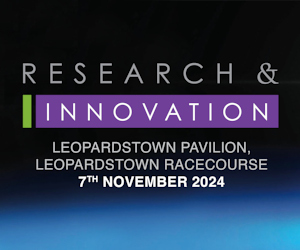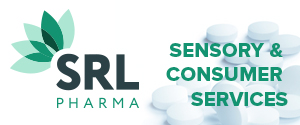Ones to watch: HRB recognises UCC researchers ‘demonstrating real promise’

UCC’s Dr Jane English and Dr Cathal McCarthy have been named by the Health Research Board (HRB) as “researchers demonstrating real promise” in its new Emerging Investigator Awards.
The awards will enable researchers at the mid stage of their career to shift gear to become independent investigators, with the HRB investing €8.3 million through this scheme to support 11 researchers who have demonstrated real promise as they take their first step to research independence.
According to Mairead O Driscoll, Interim CEO at the HRB: “What set these successful individuals apart was their diversity and ability to multitask. Their challenge now is to build their research team, advance their research programmes, foster collaborations and leverage funding to build a sustainable research programme. Everyone is well qualified for the challenge.”
The HRB will support these investigators for four years with a maximum of €800K, including the investigators’ salary and support for research staff. Areas set to benefit from this investment include health economics, biostatistics, immunology, respiratory medicine, obstetrics, pharmacology, neurology and neuroscience, psychology, molecular and cellular biology and health services research.
As well as doing research that would ultimately improve people’s health, or positively influence policy or practice, the researchers will also be expected to act as mentors and work well in collaboration with other disciplines.
Dr Jane English, HRB Principal Investigator (Neuroscience), at INFANT Research Centre, UCC, will establish an innovative research programme in Autism Spectrum Disorder (ASD), which is a complex disorder of brain development. ASD now affects 1 in 65 school children in Ireland, however most children are not diagnosed until an age when early intervention therapy is no longer maximally effective. Dr English’s lab will investigate biomarker molecules in the blood for the early identification of children at high-risk of developing infantile autism, which will facilitate the earliest possible intervention and improve clinical outcome.
“The early diagnosis of Autism is an area of significant unmet clinical need and is a major health challenge in Irish Society” said Dr English.
This HRB Emerging Investigator award will fund an international collaborative research programme led by Dr English, which will access rare blood samples from several international birth cohorts including the Danish National Birth Cohort, the Aarhus Birth Cohort, and Cork’s own BASELINE Birth Cohort, making it the largest Autism Biomarker Discovery programme undertaken to date.
“The HRB Emerging Investigator award is an incredibly exciting opportunity for researchers aiming to establish themselves as independent investigators in academia,” added Dr English, who will also be taking up a lecturing post in the Department of Anatomy & Neuroscience, UCC, in 2018.
Dr Cathal McCarthy, Research Fellow and HRB Principal Investigator (Obstetrics), at INFANT Centre, UCC, is investigating the area of Pre-eclampsia and Gestational Diabetes Mellitus, which are two common complications of pregnancy. The prevalence of both pregnancy complications has increased in Ireland and it seems that mitochondrial dysfunction might have an effect on development of Pre-eclampsia and Gestational Diabetes Mellitus.
The main focus of this study is to investigate the therapeutic potential of targeting mitochondrial function for treating Pre-eclampsia and Gestational Diabetes Mellitus in order to improve the long-term outcome of pregnancy for both mothers and babies.
“The uniquely vulnerable nature of the pregnant and newborn population creates several challenges, which has restricted the discovery of new therapeutic targets and identification of the mechanisms involved,” Dr McCarthy said.
“The funding provided by the Health Research Board Emerging Investigator Award will provide me with the opportunity to investigate the shared and separate pathophysiologies of Pre-eclampsia and Gestational Diabetes Mellitus, ultimately helping researchers and clinicians to optimise diagnostic potential and improve treatment modalities for both pregnancy complications.”
The substantial four-year funding awarded will allow Dr McCarthy to recruit a research fellow, PhD student and research assistant to work on identifying novel therapeutics for these pregnancy complications.







